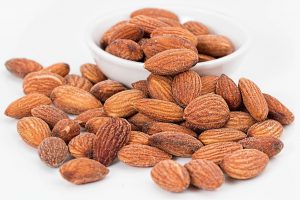Most Common Men’s Health Issues
Credit: https://pixabay.com/en/beach-leisure-men-ocean-outdoors-1846108/
June may be Men’s Health Month, but that doesn’t mean men shouldn’t be taking care of their health all year long. In fact, studies show that far too few men are getting annual physicals to check up on their wellness — and potentially save themselves from complicated, costly and painful health problems. So, what should men be watching out for in terms of their health? Here are some of the most common health issues among men, and how you can avoid them:
Heart Disease
Heart disease is the leading cause of death for men in the U.S., affecting around 1 in 3 men every day. The biggest risk factors for heart disease are high cholesterol, high blood pressure and smoking, however, other medical conditions and lifestyle choices can increase your risk as well. These conditions include:
- Diabetes
- Poor diet
- Lack of exercise
- Obesity and being overweight
- Excessive alcohol consumption
Regular checkups, as well as healthy eating, exercise and lifestyle habits can greatly reduce your risk for heart disease. And, if you already have heart disease, it’s not too late to turn things around. Engaging in healthy habits can reduce your risk, no matter your current health condition. Just be sure to consult a medical professional for help before undergoing any major lifestyle changes.
Cancer
Despite continued research and advancements in cancer treatment, it remains the No. 2 killer of men in the U.S. While cancer can sometimes feel impossible to avoid — seemingly healthy people are diagnosed with cancer all the time — there are still certain things you can do to prevent it. The best thing you can do is to continue getting an annual health checkup. With many cancers, your survival rate increases dramatically the sooner the cancer is found. Regular checkups allow your doctor or a medical professional to keep an eye on you, and discuss any pains or problems you may be having before it’s too late. The three most common, and most deadly, cancers in men are:
- Prostate cancer
- Lung cancer
- Colorectal cancer
Along with regular checkups, men can maintain good health habits to reduce their risk of cancer. Avoiding tobacco products, engaging in regular physical activity and eating a healthy diet are all proven ways to reduce your risk.
Diabetes
More than 29 million Americans have diabetes, and more than half of them are men. This should come as no surprise when many of the risk factors for diabetes are strikingly similar to those of heart disease. Risk factors for type 2 diabetes, the most common type of diabetes, include:
- Obesity and being overweight
- Lack of exercise
- High blood pressure
- Family history
Changing your lifestyle isn’t easy, but it can be one of the best ways to prevent type 2 diabetes. With healthy diet and exercise, your risk for diabetes is significantly lowered. Monitoring your health with regular checkups can also help you reduce your risk.
Have you noticed a common theme yet? Along with a having a healthy lifestyle, scheduling regular checkups with a doctor is one of the best ways to prevent some of the most common men’s health issues. If you haven’t had an annual checkup yet this year, head over to your nearest American Family Care for a quick and convenient Man Up Checkup — no appointment necessary. It’s time to take care of yourself this Men’s Health Month, and American Family Care can help.













